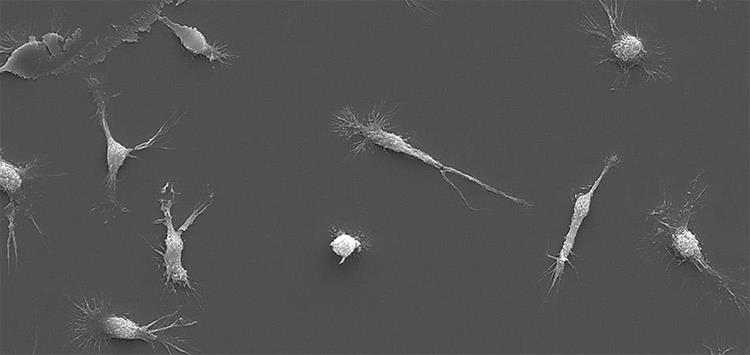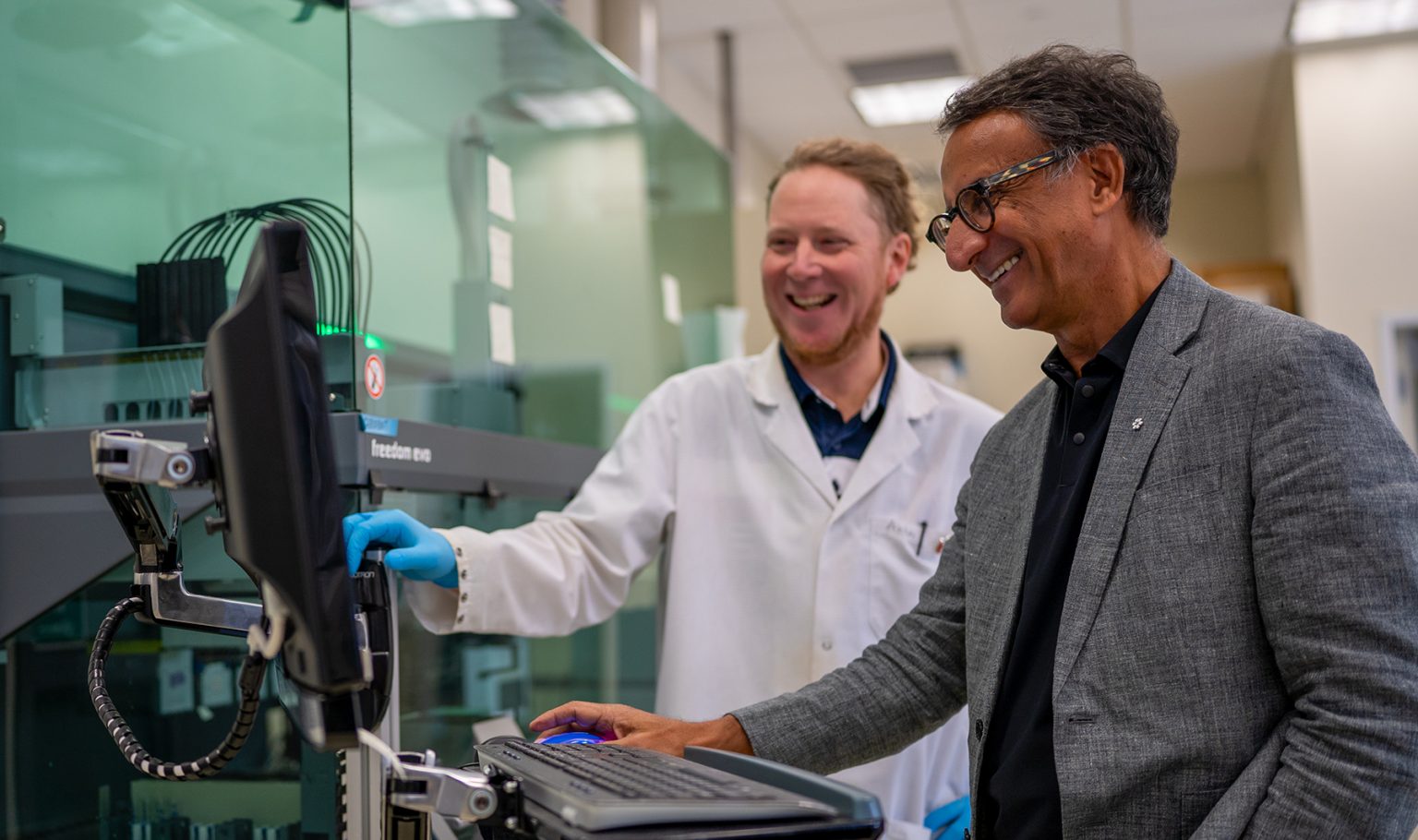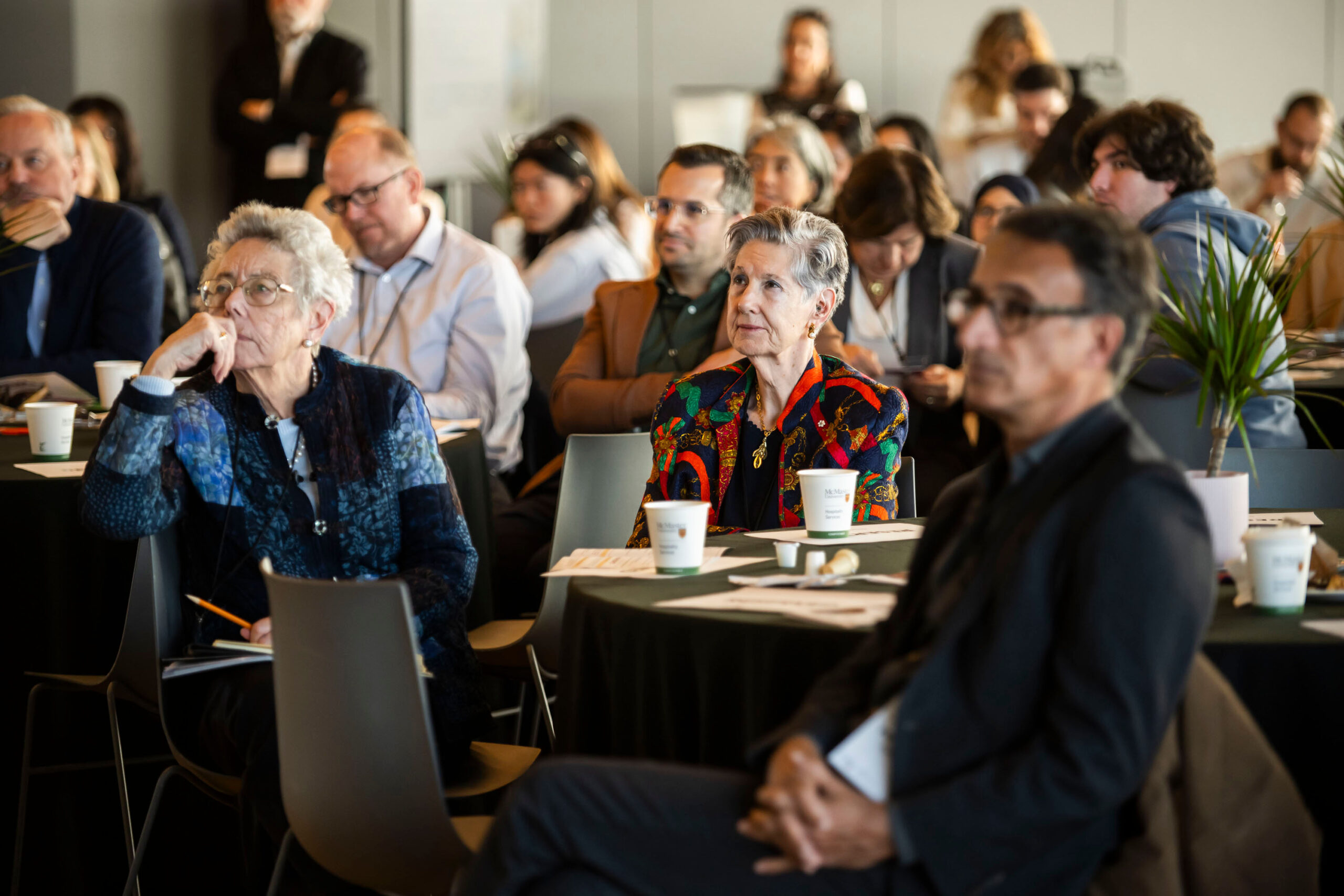
Dawn Bowdish is a Canada Research Chair in Aging and Immunity and an Associate Professor at McMaster University in the department of Pathology and Molecular Medicine. Her research focuses on age-associated inflammation and developing a better understanding of how the immune system fights bacterial pneumonia in older adults. She has been a MIRA member since November 2016.
Can you tell us about your research a​s it relates to aging?
My lab studies how age-associated inflammation impacts the immune system. As we get older we naturally have more inflammation in our blood and tissues. If you come to our lab and donate blood, for example, we can predict your age within about five years based on how much inflammation is in your blood. If you have lower than age-average levels of inflammation, then you’re more likely to live a healthy, long, independent life; if you have high levels of inflammation, you’re more likely to get chronic inflammatory diseases, cardiovascular disease, diabetes, dementia, be less physically active and more frail. You need your immune system to fight infections and to keep you healthy and strong; if we can reduce inflammation, we think we can give people longer, healthier lives.
We also study the ways that the immune system and the microbiome (all of the bacteria that live on and in us) work together. Our immune system develops a long-term relationship with our microbiome; so, when immune function fails, the composition of these microbes change, which can cause age-associated inflammation.
How do you apply this knowledge to older adults?
Older adults are very interested and aware of this concept of inflammation and they understand that it’s better to have less inflammation. What few people like to hear is that the only way to bring down age-associated inflammation is through exercise, which is nature’s anti-inflammatory, and a healthy Mediterranean-style diet. We believe that not only is exercise and a Mediterranean diet really good for your body, it’s also good for the microbes in your gut microbiome.
Some studies have found that diet and probiotics have a greater impact on older adults than young and middle-aged people. So, the long-term goal of my lab is to find ways to improve the make-up of the gut microbes—either through probiotics or prebiotics—or repurpose drugs currently on the market to bring that inflammation down and improve immune function.

More than a ‘gut feeling’ on age-associated inflammation
How did you become interested in research on aging?
There are two reasons: one, I connected with an amazing clinician scientist named Dr. Jennie Johnstone [Infectious Diseases and Infection Control, St. Joseph’s Health Centre, Toronto] who was studying pneumonia in older adults while I was studying pneumonia in mouse models. She and I hit it off immediately and we realized this was an area we could make a big impact because it wasn’t well studied. Today, my lab collaborates with quite a few clinicians to study how the immune system changes in older adults and how this impacts their lives.
The second reason was because of my family. It became clear to me that having grandparents involved in my kids’ lives was a huge benefit not just to them, but to me, to them, to our community, our province and, ultimately, our country. I care a lot about keeping older adults healthy so that they can have as many years as possible with their grandchildren and so that they can be active, healthy contributors to their communities.
“I care a lot about keeping older adults healthy so that they can have as many years as possible with their grandchildren.”​
Can you tell us more about diseases that infants give to their grandparents?
One of the major risk factors for developing bacterial pneumonia is contact with children. So all of that babysitting I ask my parents to do is really putting them at risk! I’m interested in transgenerational issues because there’s a lot of great data that says kids who have actively involved grandparents do better in school, have better behaviour and generally do better in life. I want to make sure that older adults don’t die from infectious diseases or become frail before their time.
Your paper on gut microbes and age-associated inflammation was recently published in Cell Host & Microbe and covered widely in the media. How did you develop that research?
About five years ago, we started studies using older mice and we were coming to the idea that one of the reasons they were susceptible to pneumonia was age-associated inflammation. Around that time, I met Elena Verdú [associate professor in the department of medicine at McMaster]. We were presenting awards at the Bay Area Science and Engineering Fair and happened to be sitting next to each other. We introduced ourselves and when she found I worked in aging, she suggested I look at her germ-free mice (mice that live with no microbes on or in them) because they “live forever.” I thought they’d be too expensive, but she encouraged me with an email stating: “you don’t get big results unless you take big risks. I’m going to give you some of these germ-free mice; you’re going to pay for them, and you’re going to thank me for it at the end of the day.”
“You don’t get big results unless you take big risks.”
So, we started aging these germ-free mice, and it is a huge credit to her because this is the only facility on the planet that routinely ages germ-free mice. We took some of these young and old germ-free mice and we co-housed them with young and old normal mice so that they would pick up the microbes from the mouse they lived with. The ones that lived with the old mice developed inflammation and didn’t do very well; the ones that lived with the young mice did pretty well. So we were able to definitively prove that the microbiota drives some of this age-associated inflammation. It was the first study in mice that demonstrated this and I thank Elena for her encouragement every chance I get!
Where will you take this knowledge? What’s next for you?
We can now say that microbes collectively drive age-associated inflammation, but we can’t say which ones are bad and which ones are good. The problem with our current probiotics is they’re not really natural members of our microbiome. They’re food stuffs—things that we put in yogurt and cheese. So, what we want to do is figure out which are the good germs and which are the bad germs so that we can develop really tailored probiotics that will reduce this inflammation in older people.
Source: Research2Reality
Read Dawn’s blog post on healthy aging and ​those who live well beyond age 100: Lessons from the oldest of the old.
Visit Dawn’s lab: http://www.bowdish.ca/lab/​

